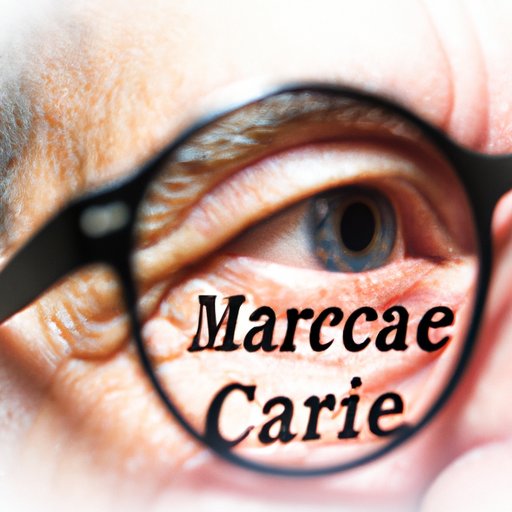
Overview of Medicare and Cataract Surgery Coverage
Cataracts are a common eye condition that occurs when the lens of the eye becomes cloudy or opaque. Over time, this cloudiness can lead to vision loss and even blindness if left untreated. Fortunately, cataracts can be treated with cataract surgery, which is a safe and effective procedure to remove the cloudy lens and replace it with an artificial one. But does Medicare cover cataract surgery?
Medicare is a health insurance program administered by the federal government that provides coverage for people 65 and older, as well as some younger individuals who qualify due to disability or certain medical conditions. Medicare is divided into four parts: Part A, Part B, Part C, and Part D. Part A covers hospital services, Part B covers outpatient services, Part C is a managed care option, and Part D covers prescription drugs.
When it comes to cataract surgery, Medicare Part B typically covers the cost. Part B is an optional part of Medicare that covers medically necessary services, such as doctor’s visits, lab tests, surgeries, and more. It also covers preventive services, such as vaccinations and screenings.
Understanding the Different Types of Cataract Surgery Covered by Medicare
There are several types of cataract surgery, and Medicare covers most of them. The three main types of cataract surgery covered by Medicare include traditional cataract surgery, laser-assisted cataract surgery, and multifocal lens cataract surgery.
Traditional cataract surgery is the most common type of cataract surgery. During the procedure, the surgeon will make small incisions in the eye and use special tools to remove the cloudy lens. The surgeon then replaces the lens with an artificial one. Traditional cataract surgery is usually done on an outpatient basis, meaning you won’t need to stay overnight in the hospital. It’s generally very safe and effective, and Medicare covers the cost of the procedure.
Laser-assisted cataract surgery is a newer type of cataract surgery that uses a femtosecond laser instead of traditional surgical tools. This type of surgery is more precise and eliminates the need for manual incisions. However, it’s typically more expensive than traditional cataract surgery, and may not be covered by Medicare.
Multifocal lens cataract surgery is a type of cataract surgery that involves replacing the cloudy lens with a multifocal lens. This type of lens is designed to improve vision at all distances, from near to far. Multifocal lens cataract surgery is usually more expensive than traditional cataract surgery, and may not be covered by Medicare.
Exploring the Cost of Cataract Surgery and What’s Covered by Medicare
The cost of cataract surgery varies depending on the type of surgery you have and the doctor performing the procedure. Generally, traditional cataract surgery costs between $3,000 and $5,000 per eye, while laser-assisted cataract surgery costs around $4,000 to $6,000 per eye. Multifocal lens cataract surgery can cost between $4,000 and $7,000 per eye.
Medicare Part B typically covers 80 percent of the cost of traditional cataract surgery. This means you’ll be responsible for paying the remaining 20 percent out of pocket. Some Medicare Advantage plans may cover additional costs, such as an upgraded lens or a second pair of glasses after surgery. However, Medicare typically does not cover the cost of laser-assisted cataract surgery or multifocal lens cataract surgery.

Examining Possible Exceptions to Medicare Coverage for Cataract Surgery
In some cases, Medicare may not cover the cost of cataract surgery. For example, if you have a pre-existing condition, such as diabetes, high blood pressure, or glaucoma, Medicare may not cover the cost of cataract surgery. Additionally, Medicare may not cover the cost of cataract surgery if it’s deemed to be cosmetic or experimental.
Exploring Other Ways to Pay for Cataract Surgery Not Covered by Medicare
If Medicare doesn’t cover the cost of your cataract surgery, there are other ways to pay for it. Your private health insurance plan may cover the cost. If you don’t have health insurance, you may be able to set up a payment plan with your doctor’s office. Additionally, there are a number of organizations that offer grants and financial assistance for those who need help paying for cataract surgery.
How to Find a Qualified Ophthalmologist to Perform Cataract Surgery
It’s important to find a qualified ophthalmologist to perform your cataract surgery. You can start by researching doctors online and reading reviews from past patients. Ask your friends and family for referrals, and ask your primary care doctor for recommendations. Make sure to ask about the doctor’s experience and qualifications, as well as their fees.

Steps to Take When Facing Cataract Surgery and Medicare Coverage
If you’re facing cataract surgery and you’re concerned about Medicare coverage, there are steps you can take to ease your worries. First, make sure you understand what your Medicare coverage includes. Talk to your doctor about the different types of cataract surgery and find out which one is right for you. Ask questions about the cost and what’s covered by Medicare. Plan ahead and look into alternative payment options, such as private health insurance or grants. Finally, make sure to find a qualified ophthalmologist to perform the surgery.
Cataract surgery is a safe and effective way to treat cataracts and restore vision. While Medicare typically covers the cost of traditional cataract surgery, it may not cover the cost of more advanced procedures. It’s important to understand your coverage and explore alternative payment options. With the right preparation and planning, you can make sure you get the care you need.
(Note: Is this article not meeting your expectations? Do you have knowledge or insights to share? Unlock new opportunities and expand your reach by joining our authors team. Click Registration to join us and share your expertise with our readers.)
